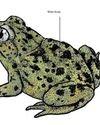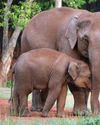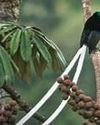Migrants to the Andaman Islands, Chetana Purushotham and Krishna Anujan find themselves enamoured by the deep, lush wilderness of these islands and the water that surrounds them. Respectively a marine ecologist and tropical biologist, they banter on the incorruptible link between life underwater and on land.

On a jagged mossy rock, a Pacific Reef Egret leans forward, motionless. As though admiring its own reflection. A wave breaks against the rock, sending salt spray and fish towards the patient hunter. Snap! Fish make their way into the hungry predator’s mouth.
Binoculars down. Pan out. Two plainclothes researchers (GK and Chutney) jump out from behind a fallen bulletwood tree onto a south Andaman Island beach.
GK: Whoa! Did that egret just catch a fish out of the sea? I thought they stick around forests and fields in the company of deer and cows.
Chutney: True… but here we are where forest and sea meet. So, when I’m not diving, I go birding.
GK: I don’t know, I like birding here, but shore birds are confusing. And frankly I know nothing about the sea.
Chutney: Learn to dive. It’s a different world underwater. Corals are ‘rainforests of the sea’.
GK: Are you serious?
Chutney: I am. Plants and animals exhibit similar adaptations even in the marine world. Safety in numbers, colour means poison, symbiosis!
LIFE IN SEAWATER
By now, you must be familiar with living in and breathing the nitrogen-oxygen mixture that we call air. Life in the sea is different. To start with, it is salty and continually in motion. If the currents don’t take you from one ocean basin to another, the tides will see-saw you, roughly every six hours, to land and back.
Denne historien er fra June 2017-utgaven av Sanctuary Asia.
Start din 7-dagers gratis prøveperiode på Magzter GOLD for å få tilgang til tusenvis av utvalgte premiumhistorier og 9000+ magasiner og aviser.
Allerede abonnent ? Logg på
Denne historien er fra June 2017-utgaven av Sanctuary Asia.
Start din 7-dagers gratis prøveperiode på Magzter GOLD for å få tilgang til tusenvis av utvalgte premiumhistorier og 9000+ magasiner og aviser.
Allerede abonnent? Logg på

Why Children Are Needed To Help Save The World
On my very first day in India, I encountered many marvelous new customs not practiced in the United States, my home country. But the most curious by far involved trees. Here and there, alongside the roaring streets of Mumbai were rings of marigold wreathed around twisting banyan trunks like dried rays of afternoon sunlight…

Who's Who?
Fact: all toads are frogs, but not all frogs are toads! Let’s unpack this...

The Sea Raptor
The White-bellied Sea Eagle Haliaeetus leucogaster is one of the most common raptors along the Indian coastline. Nevertheless, the sight of this soaring, broad-winged, white and black bird of prey is nothing less than majestic

Bringing Up Bob Hoots.
While we were visiting a friend’s farm in the village of Yelachetty, near Bandipur Tiger Reserve, we found Spotted Owlets nesting on the tiled roof… and one of the chicks on the kitchen floor!

Yala, Land Of The Leopard
Yala is not only Sri Lanka’s second-largest, but also the most-visited national park in the island nation.
The Wizards Of Oz!
Australia is not only a country, but also a continent. The land down under, cut-off from the rest of the world has an abundance of unique species of native animals, birds, reptiles, insects and plants.

Scales & Tails
I was really excited and looking forward to the workshop on reptiles and amphibians at Nature’s Nest in Mollem, Goa, between June 24 and 26, 2017. It was my opportunity to meet renowned herpetologist Varad Giri.

Big, Brilliant And Endangered
When one thinks of elephants, the first word that probably comes to mind is BIG! But elephants, while they may be the largest creatures on land, are not just big and powerful, they’re wise and sensitive as well. Recent scientific studies have established that they are among the most intelligent animals in the world.

Earth Manners
Everyday habits matter! Let’s be kind to the planet, animals and ourselves!

World Scan
CHINA’S IVORY TOWNAn explosive investigation by the Environmental Investigation Agency has revealed how criminal gangs originating from an obscure town in southern China have come to dominate the smuggling of ivory tusks poached from African elephants.